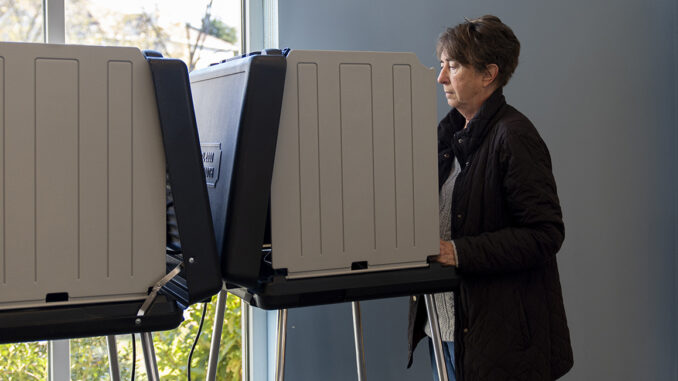

RALEIGH — The North Carolina General Assembly has filed more than 200 bills so far this session.
Aside from Hurricane Helene disaster recovery legislation, bills of note this session span topics that include education, elections, health care, firearms, investments/finance, law enforcement, taxes and a constitutional amendment.
Education
House Bill 7, the NC Reach Act, would require students pursuing baccalaureate degrees at UNC system institutions or associate degrees at North Carolina community colleges to complete three credit hours in American history or American government.
At least five bills so far directly seek K-12 public school district calendar flexibility: House Bill 30 (Winston Salem-Forsyth, Stokes and Davidson), House Bill 104 (Buncombe), House Bill 119 (Pitt), Senate Bill 66 (Cumberland), and Senate Bill 100 (Moore). Two bills seek to allow all local school boards to determine their own opening and closing dates: House Bill 121 and Senate Bill 103.
The current K-12 calendar law requires a minimum of 185 days or 1,025 hours of instruction. Under the law, the school year’s start date can be no earlier than the Monday closest to Aug. 26 and the end date no later than the Friday closest to June 11.
In the past few years, the Senate has not shown an interest in passing school calendar bills, and Senate Leader Phil Berger has said he doesn’t see a need to alter the current calendar. More than half a dozen districts have ignored the law following the pandemic.
The election of Gaston County Board of Education and Columbus County members would become partisan races under House Bill 105 and House Bill 116, respectively.
House Bill 56 would require local school boards to publish detailed employment information about their central office employees on their websites annually, starting Aug. 15.
Senate Bill 55 and House Bill 87 both target cell phone use in K-12 schools. The bills would require public schools to create policies regulating and restricting student cell use during instructional time.
House Bill 82 includes a study of the impact of the state’s five largest districts to determine negative outcomes due to the large student populations.
Elections
House Bill 66 would shorten the early voting period to a week, changing it from the third Thursday before an election to the second Monday before an election.
Senate Bill 10 would create a mobile driver’s license. The bill’s language includes the use of such a license for voting purposes.
Firearms
House Bill 5 and Senate Bill 50 both advocate for individuals to be able to carry a concealed handgun without a permit. Notably, Berger has given his backing as co-sponsor of the Senate version.
In line with the U.S. House’s “Protecting Privacy in Purchases Act,” House Bill 38 would prohibit credit card companies from using “firearms codes” to tag and track purchases as well as from discriminating against firearms purchasers and vendors. A civil penalty of up to $10,000 per violation is included in the bill.
Health care
Under Senate Bill 24, to address increasing health care costs driven by government-mandated health insurance, any new legislation with health benefit mandates must simultaneously repeal an equal number of existing mandates and include recurring funding appropriations to cover the mandate’s costs. The legislation is spurred by concerns that North Carolina ranks 50th in health care costs nationally. A similar measure was introduced in the House under House Bill 46.
Investments/Finance
House Bill 79 would create a Small Business Retirement Savings Program to address the approximately 1.7 million North Carolina working families who lack access to employer-sponsored retirement plans. The proposed program would be voluntary.
House Bill 92 authorizes the state treasurer to allow qualifying digital assets, including cryptocurrencies, virtual currencies, stablecoins and NFTs, in state investments such as the retirement system, pension funds and education-related funds.
Law Enforcement
House Bill 52 would create a new Class I felony for assaulting public safety officers or law enforcement/search-and-rescue animals by throwing or spraying water or other substances at them.
Senate Bill 58 seeks to limit the North Carolina attorney general from participating in certain litigation, namely any executive order issued by the president of the United States.
Taxes
House Bill 11 aligns with President Donald Trump’s removal of taxes on tips. The bill proposes a set of new income tax deductions allowing specified service industry workers to deduct all overtime compensation earned under the Fair Labor Standards Act.
House Bill 14 contains provisions to make certain gambling losses tax deductible.
Senate Bill 47 would repeal previous laws allowing state employee associations to automatically deduct dues from member paychecks. This is a measure that has seen multiple unsuccessful attempts over the past decade.
N.C. Constitutional Amendment
House Bill 64 proposes an amendment requiring the governor to obtain majority approval from both houses of the General Assembly for any clemency grants (reprieves, commutations and pardons) after conviction.
Constitutional amendment bills are not subject to gubernatorial vetoes and, if passed, will be placed on the November 2026 ballot for voters of the state to decide.
Miscellaneous bills
Senate Bill 63 would create a “Board of Motor Vehicles” that would have nine members and a study for potentially creating a Motor Vehicle Authority to replace the N.C. Division of Motor Vehicles (NCDMV). The study is due by Jan. 1, 2026. Sen. Michael Lazzara (R-Onslow), one of the bill’s primary sponsors, has been vocal about wanting to privatize the NCDMV. The agency and its chief, Wayne Goodwin, were questioned by lawmakers on various issues during three oversight hearings in 2024.
House Bill 96 and Senate Bill 71 both seek to create a new expedited process for removing unauthorized occupants from residential properties.
House Bill 86 proposes barring individuals who are not legal residents or citizens of the United States or its territories from having criminal convictions or charges expunged from their records.



